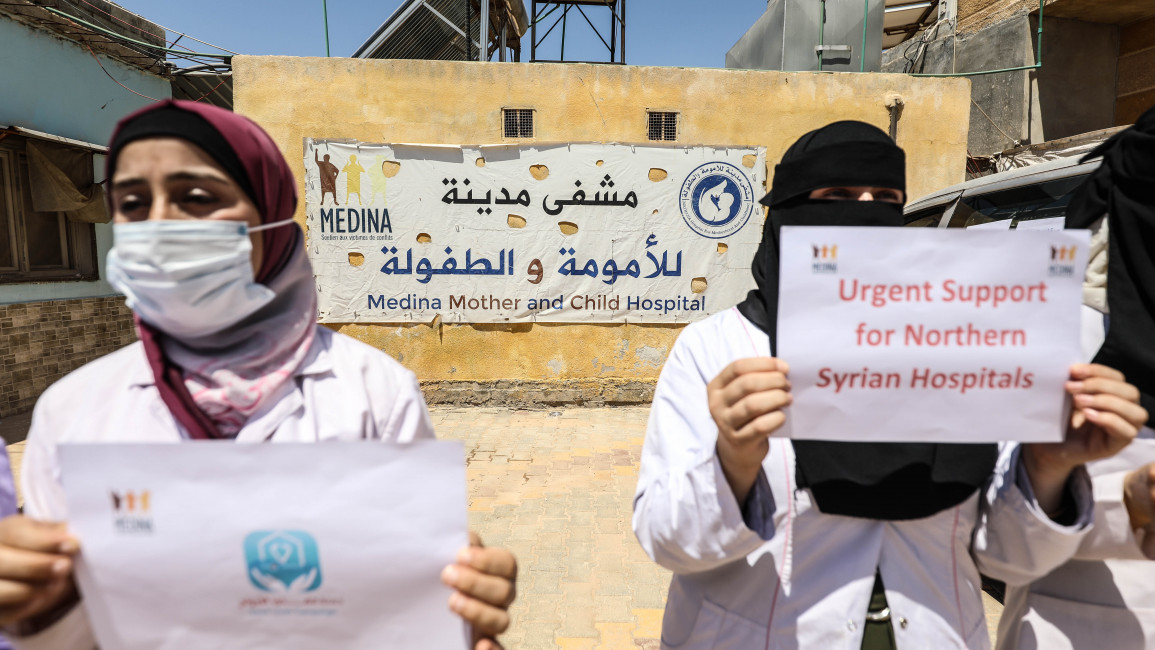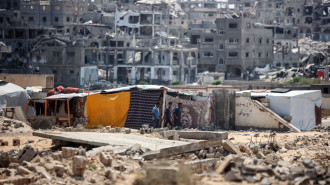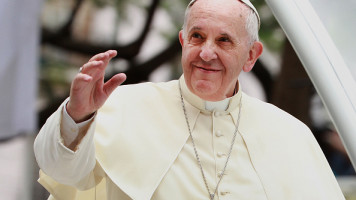Hospitals in northwest Syria face major funding shortfalls, risking closure
A major hospital in northern Syria is at risk of closing from a lack of funding in the latest crisis for the impoverished and war-ravaged region.
Bab al-Hawa Hospital, one of the largest in the northwestern Idlib governorate, may be forced to shut down by the end of September unless it urgently receives funds, according to the hospital administration.
For over a decade, the hospital has been providing medical treatments to residents and the thousands living in displacement camps, wracked by years of conflict compounded by last year's multiple earthquakes.
It is the only facility in the northwestern region which provides free services to patients, including paediatric, neurosurgery, cancer, and several clinics and specialisations.
The hospital administration, in collaboration with the Syrian American Medical Society (SAMS), warned earlier this week that a "severe funding shortage" is threatening the total closure of the hospital, leaving thousands without access to life-saving treatment.
In an interview with Al-Araby Al-Jadeed, The New Arab's sister outlet, the media director at Idlib Health Directorate Karam al-Sheikh Ali said that meetings with donors took place last month in a bid to garner further funding.
While talks with local and international partners are ongoing, there is not yet any response or "glimmer of hope" that the much-needed support will transpire, the report said.
Another medical facility in the Idlib governorate is also facing a funding crisis.
'Save a Soul' Hospital for women and children has not received funding for the past three months, a psychiatric doctor at the hospital told The New Arab on Thursday.
Dr Ahmad Boukai said that "most of the hospitals in the area" were facing many difficulties. He said the hospital is struggling to function since some 50 medical staff stopped working.
Save a Soul receives funding from UN agencies OCHA and the World Health Organization as well as local organisations, Dr Boukai said.
But in recent years international support for Syria has declined as the world's attention has shifted to other global crises such as Ukraine, Gaza and Sudan, even after the devastating earthquakes in the region in February 2023.
Leading medical organisation Médecins Sans Frontières (MSF) which co-runs six hospitals in Idlib and Aleppo governorates, warned earlier this year that nearly a third of all health facilities in the area had either closed or partially suspended operations.
MSF said that 1.5 million people depend on the health facilities with residents particularly in need of care after years of living in displacement camps.
The international donor conference in Brussels in May saw a pledge of 7.5 billion euros in grants and loans to support Syrians, but it fell short of totals raised in previous years.
As much as 70 percent of the population in Syria is estimated to need humanitarian aid with the country among the top ten globally for hunger levels.
But the international community is increasingly keen to see Syrian refugees returned to the fractured country with fighting in the 13-year conflict largely frozen, though dangers remain high for dissidents and men of military conscription age.
The civil war split the country between Syrian regime-held areas and those taken by opposition political and militant groups. The northern Idlib governorate which borders Turkey is run by hardline Sunni Islamist group Hayat Tahrir al-Sham (HTS) and still faces sporadic clashes.







 Follow the Middle East's top stories in English at The New Arab on Google News
Follow the Middle East's top stories in English at The New Arab on Google News
![Palestinian schoolgirls [Getty]](/sites/default/files/styles/image_330x185/public/2175253376.jpeg?h=a5f2f23a&itok=_koz8LeK)

